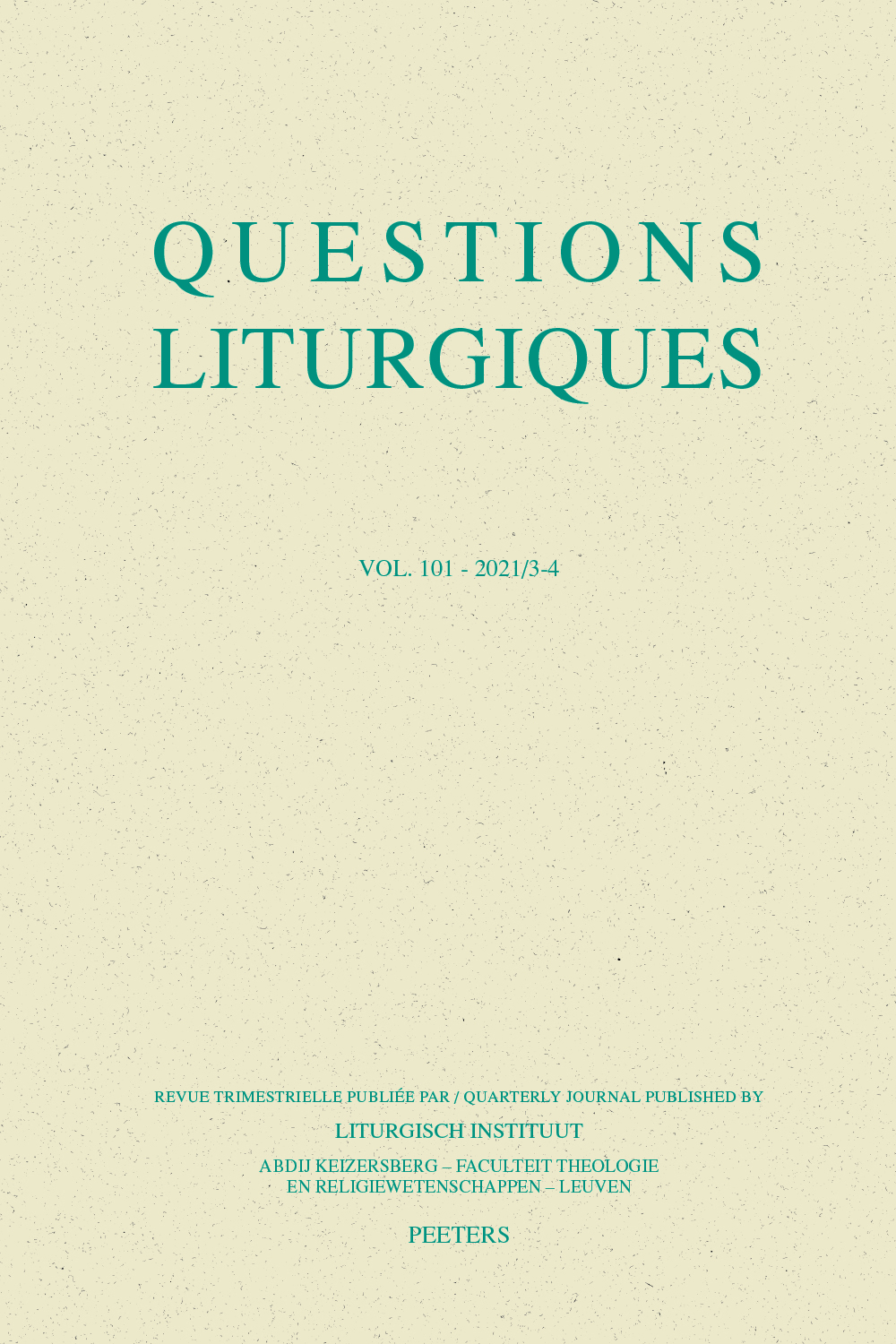 previous article in this issue previous article in this issue | next article in this issue  |

Preview first page |
Document Details : Title: Liturgy Reform since Vatican II Subtitle: The Role Played by Bishops in the English-Speaking World Author(s): WHELAN, Thomas R. Journal: Questions Liturgiques/Studies in Liturgy Volume: 95 Issue: 1-2 Date: 2014 Pages: 81-109 DOI: 10.2143/QL.95.1.3030647 Abstract : This article first provides a brief survey of the work of English-speaking bishops throughout the world as they responded to the reform of liturgy in their local churches up to 1975. It outlines the concerns of English-speaking parts of the African and Asian continents – places often ignored in a Western discourse on liturgy, throwing into question the tendency to make its own conclusions universal. The article examines the translation work carried out by the International Commission on English in the Liturgy (ICEL), effectively an agency of 26 English-speaking bishops’ conferences, and so maps elements of a changing relationship between Rome and local churches. Attention is drawn to the differing concerns between bishops in English-speaking hierarchies in Europe, North America and Australia and those in Africa and Asia. While the former were concerned with responding to Roman led initiatives, the latter were more interested in radical reform, taking seriously issues of inculturation that went beyond language translations. It is argued that the Roman control of translation detail and its distrust of local Churches are the polar opposite to what the Council had proposed some fifty years previously and to some extent the inertia of the bishops themselves has contributed to this reversal of ecclesiological perspectives. Cet article présente tout d’abord un bref aperçu du travail des évêques anglophones à travers le monde en réponse à la réforme de la liturgie dans leurs églises locales jusqu’en 1975. Il souligne les apports de régions anglophones des continents africains et asiatiques – régions souvent ignorées dans les discours occidentaux, emportés par leur tendance à rendre leurs propres conclusions universelles. Cette contribution analyse le travail de traduction effectué par la Commission internationale sur l’anglais en liturgie (ICEL), effectivement un groupement de 26 conférences épiscopales anglophones, et ainsi vectrices d’un rapport changeant entre Rome et les Églises locales. L’attention se porte sur les différentes concertations entre évêques dans les hiérarchies anglophones en Europe, Amérique du Nord et Australie et celles d’Afrique et Asie. Alors que les premières se rassemblent pour répondre aux initiatives romaines, les secondes sont davantage intéressées par des réformes radicales, proposant sérieusement des solutions d’inculturation, portées au delà des traductions linguistiques. Il est fait argument que le contrôle romain de la traduction dans le détail et sa méfiance des Églises locales se situent au pôle opposé de ce que le concile a proposé cinquante années auparavant et que certaines inerties d’ évêques eux-mêmes ont contribué à ce renversement de perspectives ecclésiologiques. |
|


